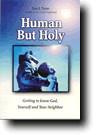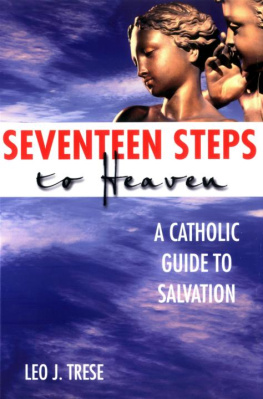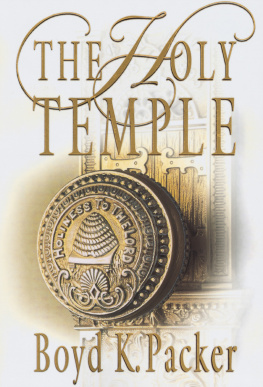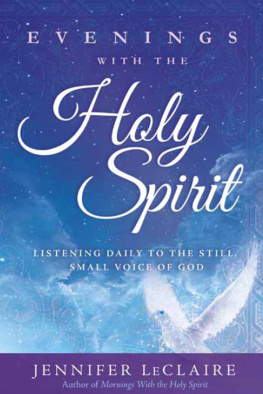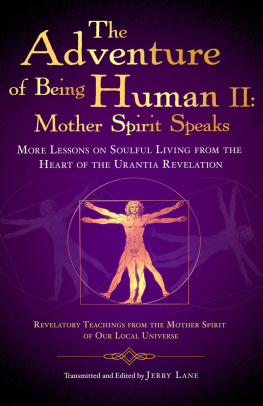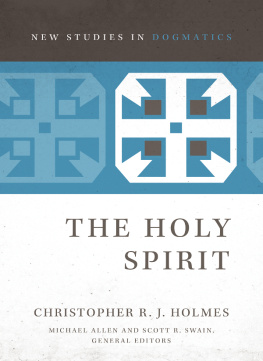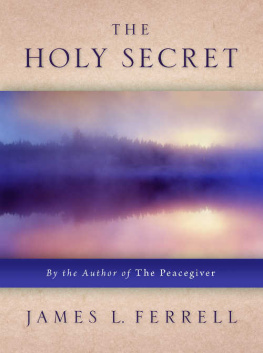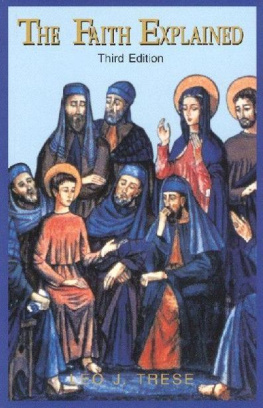Leo J. Trese - Human But Holy
Here you can read online Leo J. Trese - Human But Holy full text of the book (entire story) in english for free. Download pdf and epub, get meaning, cover and reviews about this ebook. year: 2011, publisher: Scepter Publishers
Romance novel
Science fiction
Adventure
Detective
Science
History
Home and family
Prose
Art
Politics
Computer
Non-fiction
Religion
Business
Children
Humor
Choose a favorite category and find really read worthwhile books. Enjoy immersion in the world of imagination, feel the emotions of the characters or learn something new for yourself, make an fascinating discovery.
- Book:Human But Holy
- Author:
- Publisher:Scepter Publishers
(first published 1959) - Genre:
- Year:2011
- Rating:3 / 5
- Favourites:Add to favourites
- Your mark:
- 60
- 1
- 2
- 3
- 4
- 5
Human But Holy: summary, description and annotation
We offer to read an annotation, description, summary or preface (depends on what the author of the book "Human But Holy" wrote himself). If you haven't found the necessary information about the book — write in the comments, we will try to find it.
Human But Holy — read online for free the complete book (whole text) full work
Below is the text of the book, divided by pages. System saving the place of the last page read, allows you to conveniently read the book "Human But Holy" online for free, without having to search again every time where you left off. Put a bookmark, and you can go to the page where you finished reading at any time.
Font size:
Interval:
Bookmark:
Human But Holy
Getting to know God, Yourself and Your Neighbor
Leo J. Trese

Contents
One
You are an important person
Do you have a sense of vocation? Do you feel a conviction that God has called you into being for a profoundly meaningful purpose? If not, it is more than likely that a great part of life's zest is lost to you.
God made you because He loved the idea of you in His divine mind. He wanted you with Himself forever in heaven, and so He actualized His image of you. He created you.
However, considering the infinite number of "possible" persons in the mind of God, there surely must be others who would have been just as lovable as youperhaps more so. Yet, it was you whom God created in preference to a billion or so alternatives.
The only explanation is that there is something unique about you which made you necessary to God's overall plan. Somewhere in His vast design for the universe there is a spot into which only you will fit. Absolutely speaking, God does not "need" any of us. However, as far as anybody can be essential to God, you are an essential link in His chain of creation and of grace.
It is not likely that you will know, until judgment day, what it is that is so special about you. If you try to guess, "What have I got that no one else has got?" you very probably will guess wrong. All that you can knowall that any of us can knowis that at some point in your life there is a task waiting which no one else can perform quite as well as you. It may not be a conspicuous contribution which you have to make, as the world judges such things. It may be just one dot on an "\" or one crossing of a "t" in God's great book of specifications. It may be just one person whom you will encounter (or have encountered) whom God can influence through you and through no one else. It may be just one remark that has to be spoken at the right time and placeand no one will speak it unless you do.
This sense of vocation, this sense of being called by God to be His co-worker and co-creator, should keep us perpetually on our toes. Not anxiously on our toes. God knows our limitations. He has made allowance for our weakness. He already has discounted our imperfections. If we make a reasonable effortjust an honest, reasonable effortto use well our graces and talents, then we can be sure that our mission will be accomplished, whatever it is, when the time for it comes.
This sense of vocation will affect our lives in many ways. It will make us more acutely conscious, for example, of the value of time, which is one of the many gifts God has entrusted to us. We shall be less inclined to waste time in idle and "time-killing" pursuits. Recognizing that God wills us to spend a reasonable amount of time on healthful recreation and innocent enjoyments, we still shall seek to use constructively the many other precious hours which sometimes slip away.
We shall be sharper-eyed, too, in appraising our skills and talents. Do we continue to develop our mind by useful reading, by study, perhaps by adult educational courses? Or have we let our mind grow stagnant through non-use? Have we some special ability which, perhaps through laziness, we have neglected to cultivate and to use?
Above all, our sense of vocation will give us a greater appreciation of prayer and the sacraments. We shall want to keep close to our Lord. We shall want to keep ourselves sensitive to the movements of His grace, to the touch of His hand. We shall want to be pliable and responsive to the guidance which we may expect of Him. It is unlikely that we shall recognize the gentle pressure of God's guidance, but we can be sure that it will be there. To accomplish all this, we must lay the basic foundation of a dynamic and crescent love for God. Our love for Him will be both our response to God's own love which called us into existence, and our fundamental preparation for whatever task or tasks may lie ahead.
Old-age security looms very large in our planning for the future. More and bigger pensions, earlier retirement, medical care for the aged; these are some of the goals we set up in our effort to assure comfort and tranquillity for our later years. They are legitimate goals and worth working towards. The strange thing is that we should labor so hard to provide security for what will be, at best, a very few years of our lives; yet at the same time should give so little thought to providing security for the eternity which will follow death.
To guarantee our eternal happiness there is only one "social security" tax which we must pay and that tax is love. It is our love for God, here and now, which equips us for heaven. Indeed if we do love God right now, we already are in heaven except for the formality of dying. If we love God, there is no power on earth or in hell which can deprive us of everlasting happiness.
This love, as we well know, is much more than a matter of words. God is not interested in mere lip service. This love is much more, too, than a sentimental feeling of tenderness toward God. Such sentimentality is quite capable of co-existing with sin, sometimes even is made an excuse for sin: "God understands. He won't be angry with me."
Genuine love for God is a very deep-seated thing, having its roots in the profoundest recesses of the soul. It is a reflex action of God's own love. It is God loving Himself through us, by the presence of the Holy Spirit within usthe Spirit who became our alter ego when we were baptized.
Our love for God manifests itself in our attachment to God's will. If we honestly are trying, to the best of our ability to see things from God's viewpoint and to do what God asks of us, then we know that we have love for God. If we are making a determined effort to be prayerful, patient, charitable, chaste, just and generous because we know that is what God wills, ours is an effective and a healthy love for God.
It is, of course, a love which can die under pressure. We can, if we are not vigilant, abandon God for some lesser love. By sin we can expel the Holy Spirit and extinguish the very source of love within ourselves.
Perhaps it would be better to say that our love for God can die from neglect, rather than under pressure. There is a dynamism to all love, even human love, which demands growth for survival. Love cannot be static. It must increase or it perishes. This is true, for example, of the love between spouses. A husband and wife who make no effort to tend their love, to cultivate and promote their love, eventually find themselves strangers to each other.
If growth is essential to human love, it is doubly essential to the love we have for God. By progressively greater surrender of ourselves to God, we make ourselves more responsive to the operation of the Holy Spirit within us. We must love God more, or we shall end by not loving Him at all.
We have good will. We do want to grow in love for God, but we hardly know where or how to begin. Fortunately, God knows where and how, and He is even more anxious than are we to see our love increase.
The question is, then, how hard and how often do we pray for growth in love? We send up to God innumerable other petitions of ridiculously less importance. We pray for a better job, perhaps, or for better health for ourselves or for someone dear to us; for success in our studies or our work; for the solution of some family problem and for a host of other things. It is possible that we are almost mute on the one intention above all others for which we ought to be praying.
Morning and night and at anytime in between when we can for a moment halt our merry-go-round thoughts, we ought to be saying, with all the fervor we can muster, Please, dear God, help me to love You. Help me to grow every day in love for You. This, most of all, is what I want."
Font size:
Interval:
Bookmark:
Similar books «Human But Holy»
Look at similar books to Human But Holy. We have selected literature similar in name and meaning in the hope of providing readers with more options to find new, interesting, not yet read works.
Discussion, reviews of the book Human But Holy and just readers' own opinions. Leave your comments, write what you think about the work, its meaning or the main characters. Specify what exactly you liked and what you didn't like, and why you think so.

